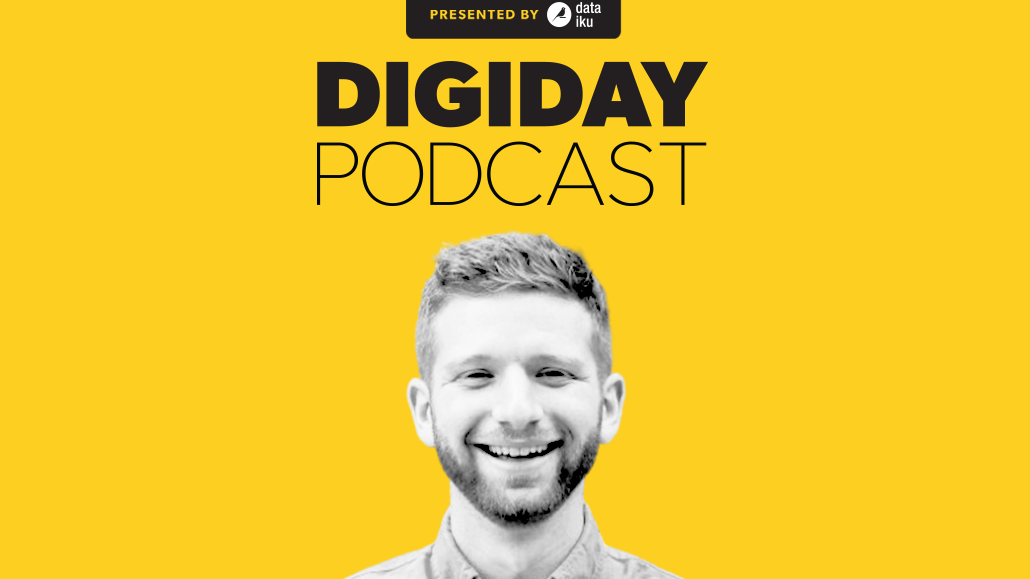Secure your place at the Digiday Media Buying Summit in Nashville, March 2-4
Why Overtime’s Elite basketball league is using social audience interest to find a live TV rights buyer

One year ago, Overtime announced it was creating its own basketball league made up of 16- to 18-year- old players — a demographic representative of the sports’ publishers’ audience.
Called the Overtime Elite League (or OTE), the social media-first sports publisher used some of the $80 million raised last year in its series C to build a basketball arena, boarding school and dorm facility in Atlanta, and recruit 27 high school-aged athletes, all of whom are paid six-figure salaries, to get the league off the ground.
As the three-team league wraps its first official season, Overtime’s co-founder and president Zack Weiner came on the Digiday Podcast to talk about the advertiser-based business model his team has created around the Elite League. The ultimate goal for making the league profitable, however, is to sell the live game rights to a network or streaming platform, which is the money maker for professional leagues, like the NFL, NBA and MLB.
Currently, OTE’s games are not broadcast to Overtime’s audience, but Weiner said the off-the-court video series and game highlight reels are working to introduce viewers to these players and generate excitement around the league, which will hopefully get a buyer to purchase the live rights for a sizable sum.
Below are highlights from the conversation, lightly edited and condensed for clarity.
One season in, advertisers are paying to play
Ultimately, we believe that this will be a league that young people are desperate to watch, whether it’s in person or digitally. And I would say that premium IP, like that, has never been more valuable to the rights holder, but it’s also never been more valuable to potential partners, streaming partners, legacy networks, etc.
We felt that if we could create a basketball league, with significant fandom, it would be extremely valuable. So that’s what we feel we’re in the process of doing and the business model is already starting to work in the sense that we have multiple, multi-million dollar sponsors that we’re really proud to be working with. Most startup leagues in the first year don’t have the benefit of having 70 million fans to distribute to on day one and I feel like that has given us sort of this, quote, unquote, unfair advantage, which is something that we try to take advantage of every day.
Owned & operated IP vs. live rights licensing
For now, we are publishing everything on different platforms, so you can watch highlights on TikTok [and] on Instagram, you can watch full game recaps on YouTube and then cut down on Snapchat. We’re really strong on all these platforms and that’s where our audience is spending a lot of time, so we are programming there.
One day in the probably not-so-distant future, I definitely expect that we will have a media rights partner. In year one, and perhaps year two, we really want to be as distributed as possible, and really let the entire world of young people have access to this amazing content. But certainly, we believe that the live rights are honestly going to be extremely valuable for the right partner.
Rounding out the business model
What we’re right now doing is building the most amount of hype and interest as possible. And in fact, I see people on Instagram or YouTube or wherever commenting all the time, “Where can I watch the live game?” And I think in the early couple of years, that’s actually a really powerful sort of pent-up energy that we want to eventually capitalize on but I don’t think the moment is right just yet. Almost every platform at this point can do live but having the technology to do live and a product being right for live on that platform is a different question.
More in Media

From feeds to streets: How mega influencer Haley Baylee is diversifying beyond platform algorithms
Kalil is partnering with LinkNYC to take her social media content into the real world and the streets of NYC.

‘A brand trip’: How the creator economy showed up at this year’s Super Bowl
Super Bowl 2026 had more on-the-ground brand activations and creator participation than ever, showcasing how it’s become a massive IRL moment for the creator economy.

Media Briefing: Turning scraped content into paid assets — Amazon and Microsoft build AI marketplaces
Amazon plans an AI content marketplace to join Microsoft’s efforts and pay publishers — but it relies on AI com stop scraping for free.








